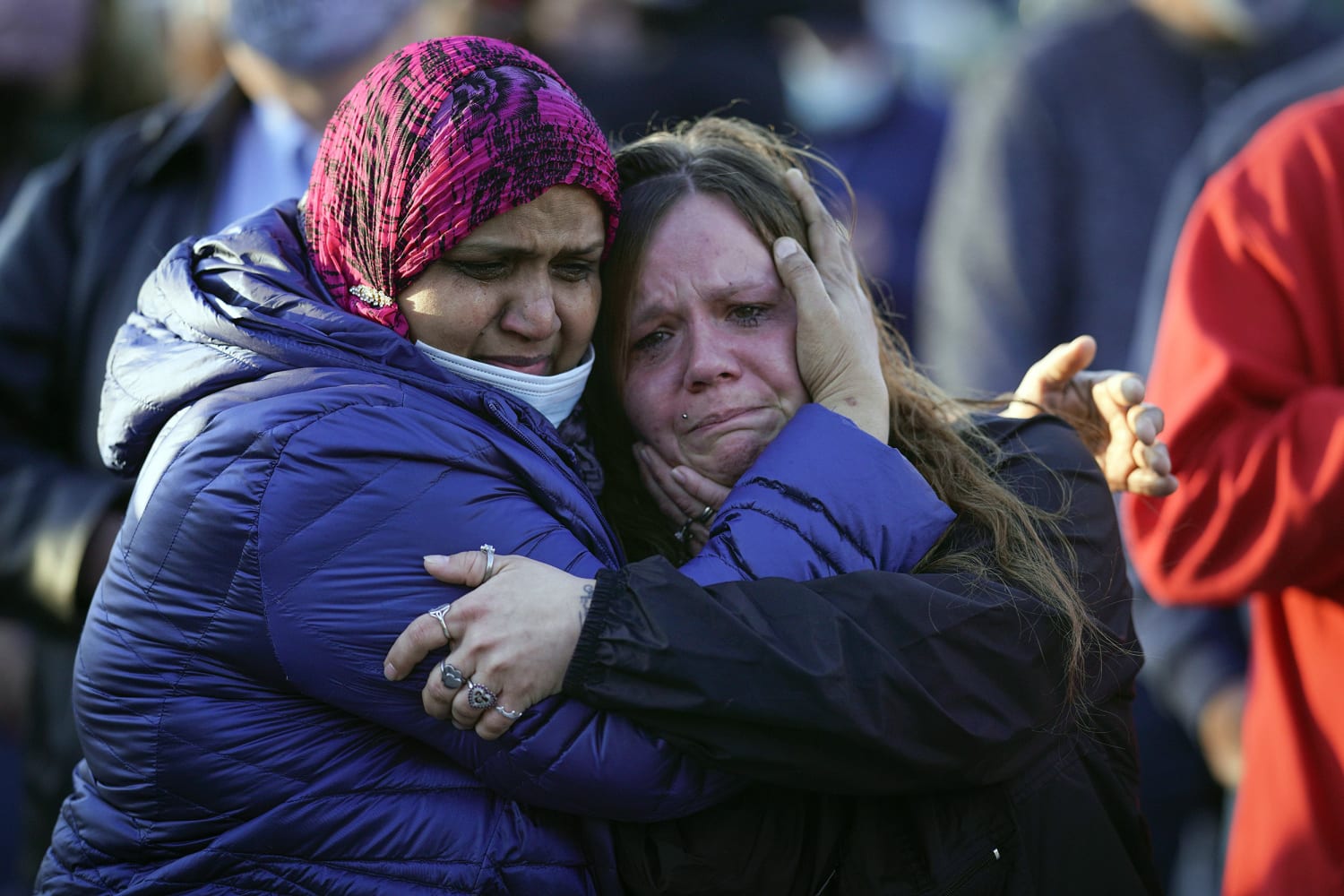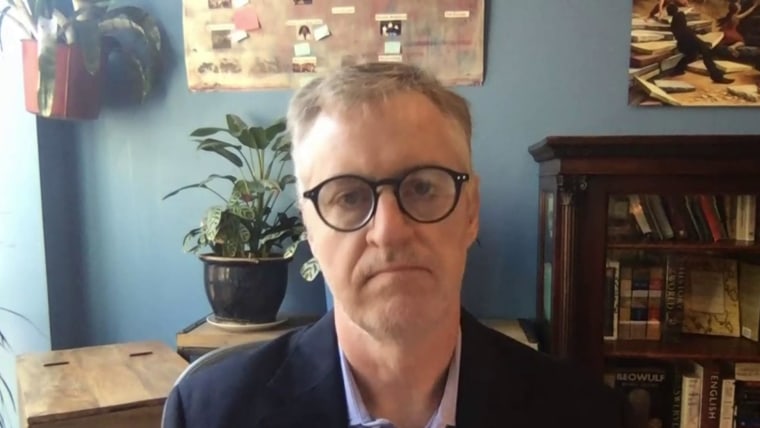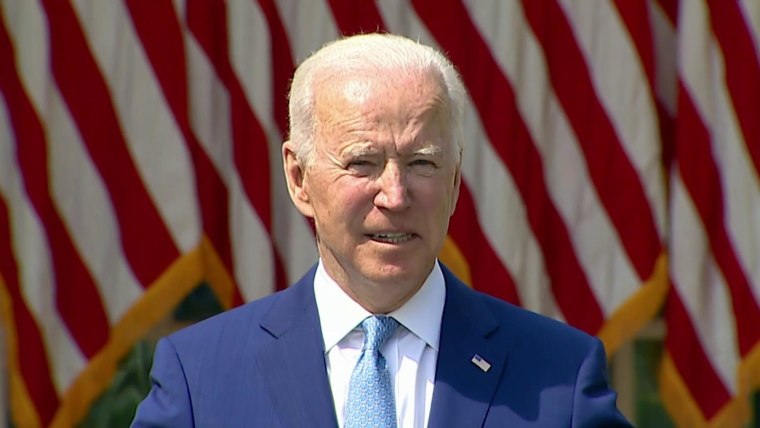Some experts believe a contagious effect sometimes seen after widely publicized suicides could be tied to the back-to-back shootings from over the weekend, which also followed a handful of high-profile shootings that have taken place so far this year.
There have been at least seven mass shootings, defined as three or more people having been shot, so far in 2021, based on data collected by NBC News, with a fear of more to come as Covid-19 restrictions are lifted nationwide. Pandemic-related trauma coupled with an increase in gun violence as firearm sales increased throughout 2020 has been a serious concern for reopening, Jillian Peterson, associate professor at Hamline University and co-founder of The Violence Project, told NBC News.
“We do know that those types of mass shootings are contagious; that they tend to spread through things like the media and social media,” Peterson said. “That people who are maybe vulnerable, see themselves in other perpetrators who do this, people who already have kind of their own history of trauma, who are maybe feeling suicidal who are in crisis, who have access to weapons, they see one make national headlines and there is this copycat effect.”
Peterson’s research has found that trauma, a need for validation, access to weapons and reaching a crisis point are common risk factors for mass shooters. A gunman’s need for validation, at least one of whom reportedly checked social media to see if they were trending during the act, has made the rest of the world an active participant in the shooting, Peterson said.
Shooters have become infamous for their violent crimes, their names and faces often shown on cable news and across social media for days following the act. At least one 2015 study found that such coverage heightens probability for similar incidents an average of 13 days after an initial event.
“I think I’m seeing less of that now, that people realize that is the contagion effect, right? When you make these individuals famous, that’s what other people are looking for,” Peterson said. “They’re looking for that notoriety. They want to be a household name, just like the perpetrator that came before them.”
Gun violence didn’t take a break during the coronavirus pandemic — in fact, 2020 saw a 25 percent increase in firearm fatalities, according to the Gun Violence Archive.
Data on mass shootings varies because researchers often use different definitions, but general gun death data from the Centers for Disease Control and Preventions found that more than half of firearm fatalities are suicide related.
To separate mass shooting prevention from suicide prevention is a mistake, according to Joel Dvoskin, a clinical and forensic psychologist with more than 40 years experience in the field. Mass shootings are often what happen when despair meets rage, something that has not been in short supply recently, he said.
“If you think about it, whenever somebody decides to kill a bunch of people, they’re deciding to end their life as they know it,” Dvoskin said. “Nobody goes back to their job, nobody goes back to their family, either they kill themselves or they make sure that the police kill them or they go away for the rest of their life to either prison or a hospital.”
Though it’s often been convenient to label shooters mentally ill, there’s no data to support the idea that those with severe, diagnosed, mental illness are any more likely to commit acts of mass violence, Dvoskin said. But that doesn’t mean these crimes aren’t connected to emotional crises that can’t be triggered as they continue to see acts of violence around them.
“It had the effect of say, ‘Well I want to go out with a bang,’” Dvorskin said. “‘I want to be famous … people haven’t paid attention to me, they haven’t listened to me, they haven’t considered me. Well they’re going to pay attention to me now by God.’ And the cable news is all too happy to oblige them.”
While some have felt that the contagion theory is a significant factor in clusters of mass gun violence, Dr. Jonathan Metzl is hesitant to put too much emphasis on individual motivations. Gun violence prevention should look at the larger context of environmental factors that drive shootings, said Metzl, who is director of medicine, health and society at Vanderbilt University.
“It’s not just that we overlook particular shootings because of the racial politics of our country — that’s true — but it’s also that doing it that way really limits the scope of how we can imagine different … policy solutions,” Metzl said. “So I just think that there needs to be much more common ground and common cause in terms of that research, policy, intervention, alliance.”
It’s possible that shooters are responding to other events, but it’s equally possible that clusters occur because potential gunmen are responding to the environment and the mood. We are in a “vicious and self perpetuating cycle” of anger, fear, and distrust of each other amid a range of conditions that have created feelings of despair as the country reopens, Metzl said.
This has all happened as Americans have been buying more firearms: 2020 saw spikes in gun sales as Americans expressed fear of civil unrest over the pandemic and election.
“It was really a perfect storm. I mean, the pandemic really was a kind of gun trauma super spreader in so many ways, because of all these things happening, and it’s something we’re going to be dealing with for quite some time,” Metzl said. “I think what we’re seeing now is just the beginning.”
If you or someone you know is in crisis, call the National Suicide Prevention Lifeline at 800-273-8255, text HOME to 741741 or visit SpeakingOfSuicide.com/resources for additional resources.
Source: | This article originally belongs to Nbcnews.com











